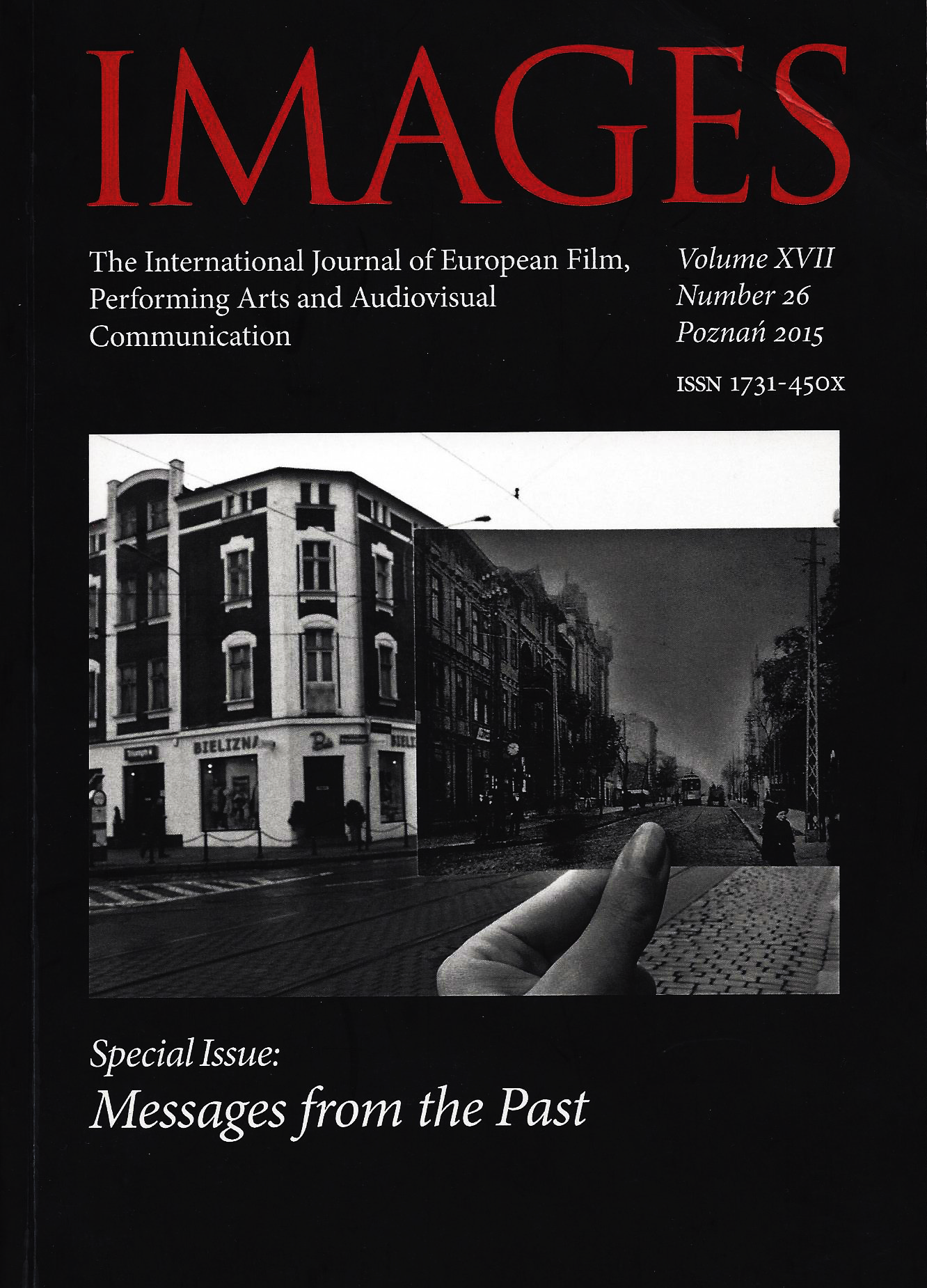Moving Ahead into the Past: Historical Contexts in Recent Polish Cinema
Moving Ahead into the Past: Historical Contexts in Recent Polish Cinema
Author(s): Thomas AnessiSubject(s): Cultural history, Interwar Period (1920 - 1939), Film / Cinema / Cinematography, Sociology of Art
Published by: Uniwersytet Adama Mickiewicza
Keywords: New Polish Cinema; history in Polish film; memory; Dom zły (Dark House); Rewers (Reverse); Little Rose (Różyczka); Kret (The Mole); Pokłosie (Consequences);
Summary/Abstract: The article looks at treatments of Poland’s 20th-century history in Polish films made over the last several years. Since 2007, Polish cinema has seen an explosion of films dealing in various ways with the history of the last century. These include mega-productions by directors known for making historically themed films, like Wajda’s Katyń or Hoffman’s 1920. Battle of Warsaw, and traditional historical dramas dealing with iconic personalities (Rafał Wieczyński’s Popiełuszko. Freedom Is Within Us) and moments in time (Antoni Krauze’s Black Thursday. Janek Wiśniewski Fell). However, a number of other works make use of historical settings from the last century in new and innovative ways. Most choose smaller-scale, less grand approaches to the past, though without abandoning an ambition to accurately depict the times they portray. Films focused on issues related to family and personal relationships, such as Jan Kidawa-Błoński’s Little Rose or Borys Lankosz’s Reverse, likewise speak about life during communism, but attempt to do so without repeating clichéd images by engaging new problems or returning to familiar ones using new techniques. Lastly, memory often plays an important role as a source of knowledge about the past, and as a filter for mediating experiences of it. This can be best seen in Rafael Lewandowski’s The Mole, Władysław Pasikowski’s Consequences (Pokłosie), and Wojciech Smarzowski’s Dark House. Archival evidence, memories of relatives, and the camera itself are used in the films to pose questions about the subjectivity inherent to film as a means of learning about the past.
Journal: Images. The International Journal of European Film, Performing Arts and Audiovisual Communication
- Issue Year: 11/2012
- Issue No: 20
- Page Range: 5-22
- Page Count: 18
- Language: English

